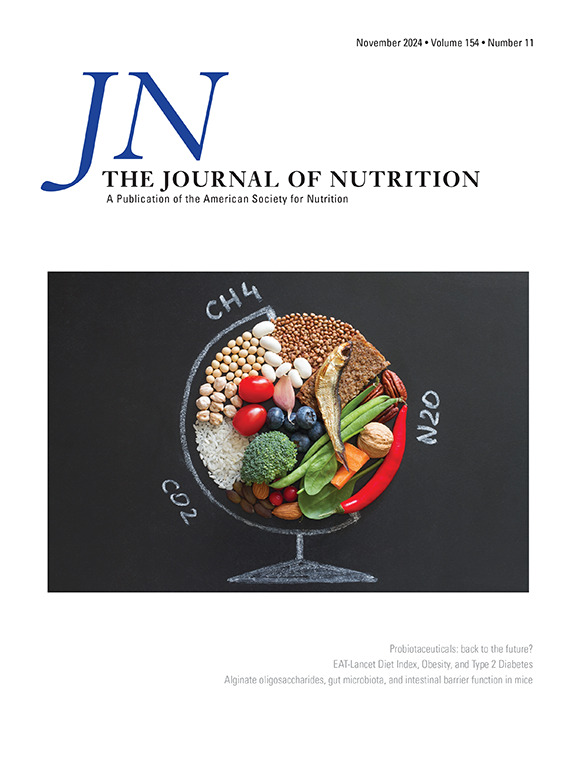Does It Really Reduce Obesity? Substitution Effects of Sugar-Sweetened Beverage Tax—Empirical Evidence From China
IF 3.8
3区 医学
Q2 NUTRITION & DIETETICS
引用次数: 0
Abstract
Background
In China, the increasing prevalence of obesity has become a significant public health challenge, prompting the government to explore various intervention measures, including tax policies. Although the Healthy China 2030 plan emphasizes the importance of promoting health, a tax on sugar-sweetened beverages (SSBs) has not yet been implemented in China, and there is a significant lack of localized empirical research on its actual effects in the country. This study aimed to fill this gap by exploring the potential impact of an SSB tax within China’s specific socioeconomic and cultural context on the obesity issue.
Objectives
This study aimed to examine the impact of the tax-induced increase in the price of sugary drinks on the consumption of various types of sugary foods in households, based on data on household consumption of sugary foods in 31 provinces from 2000 to 2015 and to calculate the change in the number of calories in households due to the increase in the price of SSBs to assess the net impact of the SSB taxes.
Methods
This study used the Quadratic Almost Ideal Demand System model, using price elasticity and substitution effects analysis, to evaluate the impact of an SSB tax on overall calorie intake and obesity rates among Chinese households.
Results
The impact of the SSB tax was evaluated, revealing that the price increase led to a nationwide reduction in SSB consumption, with the most significant decrease observed in low-income households. After a 20% price hike, SSB consumption in low-income families decreased by 29.42%. However, owing to the substitution effect, this price increase also led households to shift toward consuming other high-sugar foods, ultimately resulting in a 2.57% increase in total caloric intake.
Conclusions
Although the SSB tax could reduce the consumption of sugary drinks among low-income families, the increase in consumption of high-sugar substitutes will lead to an increase in overall caloric intake, which may undermine the effectiveness of SSB taxes. This suggests that merely imposing an SSB tax may not be effective in reducing obesity rates in China. The research highlights the need for a more comprehensive strategy, such as expanding the tax scope to include more high-calorie foods, to more effectively reduce the prevalence of obesity.
它真的能减少肥胖吗?含糖饮料税的替代效应——来自中国的经验证据。
背景:在中国,肥胖症的日益流行已经成为一个重大的公共卫生挑战,促使政府探索各种干预措施,包括税收政策。尽管“健康中国2030”规划强调了促进健康的重要性,但含糖饮料税尚未在中国实施,其在中国的实际效果也明显缺乏本地化的实证研究。本研究旨在通过探索中国特定社会经济和文化背景下的SSB税对肥胖问题的潜在影响来填补这一空白。目的:根据2000年至2015年31个省份含糖食品的家庭消费数据,研究含糖饮料价格的税收上涨对家庭各类含糖食品消费的影响。本研究还计算了由于SSB价格上涨而导致的家庭卡路里数量的变化,以评估SSB税的净影响。方法:本文采用二次几乎理想需求系统(QUAIDS)模型,运用价格弹性和替代效应分析,评估了SSB税对中国家庭总热量摄入和肥胖率的影响。结果:对SSB税的影响进行了评估,发现价格上涨导致全国SSB消费减少,其中低收入家庭的下降最为显著。在价格上涨20%之后,低收入家庭的SSB消费减少了29.42%。然而,由于替代效应,这一价格上涨也导致家庭转向消费其他高糖食品,最终导致总热量摄入增加2.57%。结论:虽然SSB税可以减少低收入家庭含糖饮料的消费,但高糖替代品消费的增加会导致总热量摄入的增加,这可能会削弱SSB税的有效性。这表明,仅仅征收SSB税可能无法有效降低中国的肥胖率。该研究强调需要一个更全面的策略,例如扩大税收范围,包括更多的高热量食品,以更有效地减少肥胖的流行。
本文章由计算机程序翻译,如有差异,请以英文原文为准。
求助全文
约1分钟内获得全文
求助全文
来源期刊

Journal of Nutrition
医学-营养学
CiteScore
7.60
自引率
4.80%
发文量
260
审稿时长
39 days
期刊介绍:
The Journal of Nutrition (JN/J Nutr) publishes peer-reviewed original research papers covering all aspects of experimental nutrition in humans and other animal species; special articles such as reviews and biographies of prominent nutrition scientists; and issues, opinions, and commentaries on controversial issues in nutrition. Supplements are frequently published to provide extended discussion of topics of special interest.
 求助内容:
求助内容: 应助结果提醒方式:
应助结果提醒方式:


